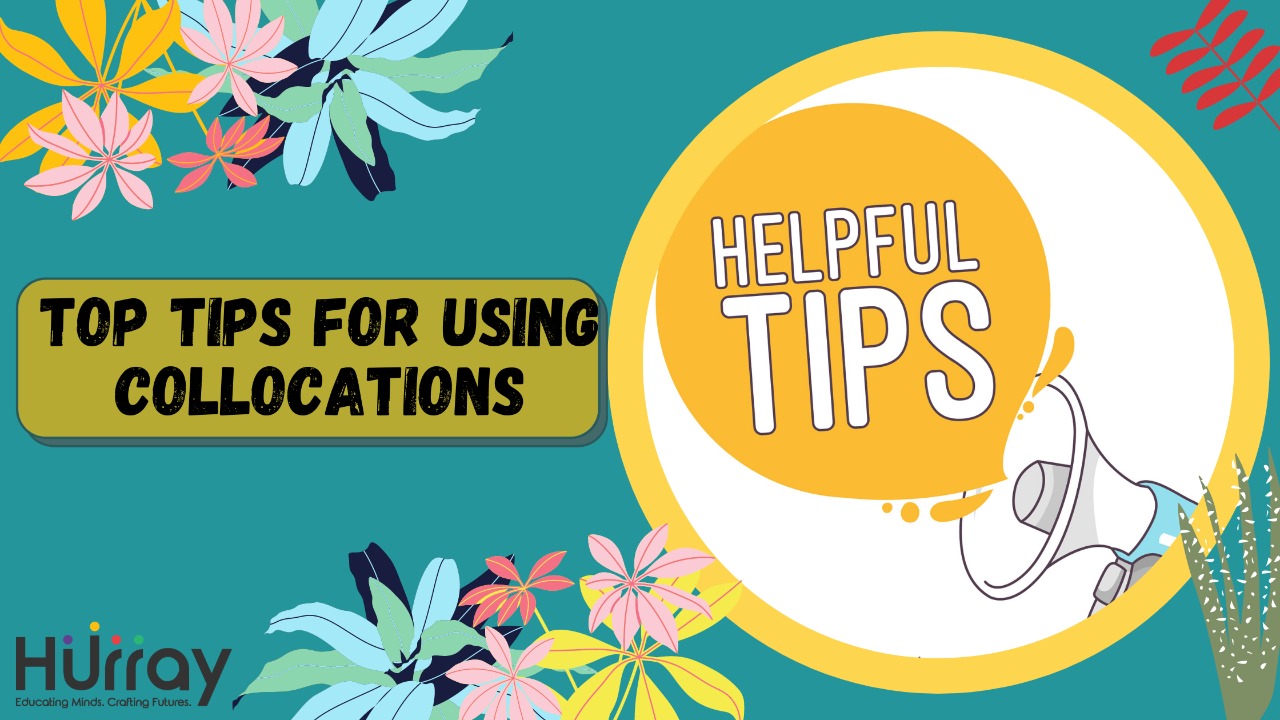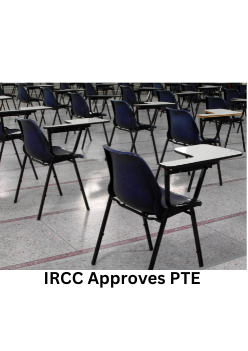Building Blocks of English: Collocations
English is a funny language – it has a variety of rules, often contradicting each other, and some of which make no logical sense!
As someone looking to improve your English language skills, whether to ace an international test like IELTS or PTE, to progress in your workplace, or to prep yourself for study or work abroad – you’ve probably reached this conclusion yourself, a few times!
No matter – we at Hurray are here to help you! With 10 years of experience training students in their English, you can be assured that we can help you master this language. The Hurray Online English Training team has compiled some useful information on the usage of grammar in writing and speaking.
We’ve launched a series of blog posts, wherein we take up one component of language at a time, and unveil its various nitty-gritties. Today, you will learn about collocations.
Before you go ahead, don’t forget to check out what we’ve already covered – including Top Vocabulary Tips for 2020, How to Use Articles in English Speaking and Writing and Prepositions and How to Use them.
Collocations: What are they?
|
Collocations are word combinations that form a fixed relationship. |
What makes Collocations important?
Collocations are established within common parlance i.e. everyday spoken and written English among native speakers – which means that the wrong combination of words may be easily noticed. Grammatically, they do not involve specific rules – it relies more on the fact that these word combinations have become the norm due to consistent use.
You would not necessarily be seen as speaking “wrong English” if you mix up collocations – however, a good grasp of collocations is part and parcel of developing mastery of the language!
Types of Collocations
Collocations involve combinations of different categories of words i.e. nouns, verbs, adjectives etc.
|
Types |
Accepted combinations |
Untypical combinations |
|
adverb + adjective |
blissfully ignorant |
happily ignorant |
|
adjective + noun |
troubling times |
harassing times |
|
noun + noun |
cup of tea |
glass of tea |
|
noun + verb |
cat purrs |
bird purrs |
|
verb + noun |
commit a sin |
make a sin |
|
verb + expression with preposition |
jump to conclusions |
jump to assumptions |
|
verb + adverb |
leave quietly |
leave silently |
The ‘accepted combinations’ all form collocations – and are probably some that you may have come across or even used in the past.
On the other hand, the ‘untypical combinations’ would not “sound right” to a native speaker – you too may have felt something amiss in these cases!
How do you learn Collocations?
Well, the only way really, is by PRACTICE. The more familiar you are with collocations, the easier it becomes for you to bring it into your everyday English usage.
Here are a few tips you can apply to help you learn better:
-
Read – as much as you can! Through reading good material, you are likely to come across several collocations… and now you are likely to recognise them, as you know better what they are.
-
Read consciously and mark words – turn your reading exercise into a collocation recognising exercise. You do not need to do this every time you read, but merely a few times a week. Make a marking in your text, and note down the collocations. If in doubt, google the collocation.
-
Search for common collocations – this may sound like a daunting exercise, but it need not be. Categorise the types of collocations you are looking for. For instance, if you start with “collocations starting with a verb” and then go about it alphabetically, you’ll soon have a comprehensive list. You may choose to note it down, or you may simply read and trust yourself to retain it… and the more you read, the quicker you will retain!
To get you started, here’s our list:
|
Verbs |
Collocations starting with verbs |
|
Bring |
Bring it on, Bring it up, Bring up, Bring along etc. |
|
Come |
Come along, Come on, Come up, Come by etc. |
|
Take |
Take on, Take up, Take a chance, Take a walk etc. |
|
Surrender |
Surrender yourself, Surrender arms |
|
Violate |
Violate the law, Violate his trust |
Collocations: Strong vs Weak
You may have noticed a difference in the number of collocations that may be derived from each verb in the above list – where some have few, and some have several. This is the difference between strong collocations and weak collocations.
Strong collocations refer to those words that enter into only a few collocation combinations, as in ‘surrender’ and ‘violate’. You would not typically say ‘surrender the bowl’ when you mean ‘give me the bowl’, nor would you say ‘violate the bowl’ when you mean ‘break the bowl’!
Weak collocations refer to those words which may be used in a number of collocation combinations, as in ‘bring’, ‘come’ and ‘take’.
Examples:
|
Category of words |
Strong |
Weak |
|
Noun |
Make a wish, Sow the seeds |
Box of chocolates, box of toys, gift box |
|
Adjective |
Meandering river, winding road |
Big surprise, big announcement, big dreams etc. |
What makes strong collocations so special? They’re the easiest to recognise and learn to use!
Most common collocations
There are some collocation words that have a wide number of collocation combinations – they may be ‘weak’, but they are extremely useful!
Here are a few examples:
|
Make make trouble make noise make a mess make a point make an appointment make sense make a profit make progress make an excuse make a phone call |
Have have a rest have sympathy have lunch have a good time have a dream have a chat have an experience have a feeling have fun have a look at something
|
Get get married get a job get a life get divorced get the message get started get lost get home get angry get the phone |
|
Catch catch fire catch a train catch a thief catch a cold catch a bus catch the flu catch a glimpse catch one’s breath catch someone’s eye catch someone’s attention
|
Go go bald go bad go crazy go abroad go astray go missing go on a trip go bankrupt go for a drink go out of business |
Do do harm do good do nothing do damage do your best do your hair do the dishes do an experiment do something right do someone a favour |
We’ve covered 6 of the most common – so why don’t you try to cover 6 others: Take, Come, Save, Keep, Lose, Miss. Once you start with the basics, you’re well on your way to learning the rest.
What next?
Studying by yourself will take you far; but studying with a knowledgeable and experienced trainer can take you farther! At Hurray, we have some of the best trainers in Bangalore – we can provide you with assistance, helping you to learn the rules, put them into practice, and improve your overall language skills.
Whether you need training for IELTS or PTE, or Spoken English training, we are at your service – and best of all, we offer our services online!
You can reach out to us at info@hurrayedutech.com 8971357938, to learn more.











Post Comments